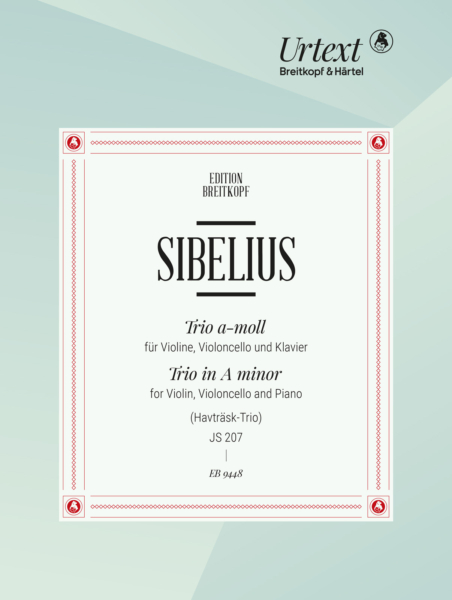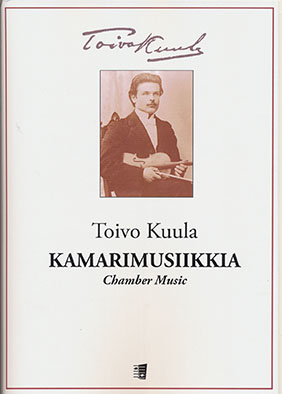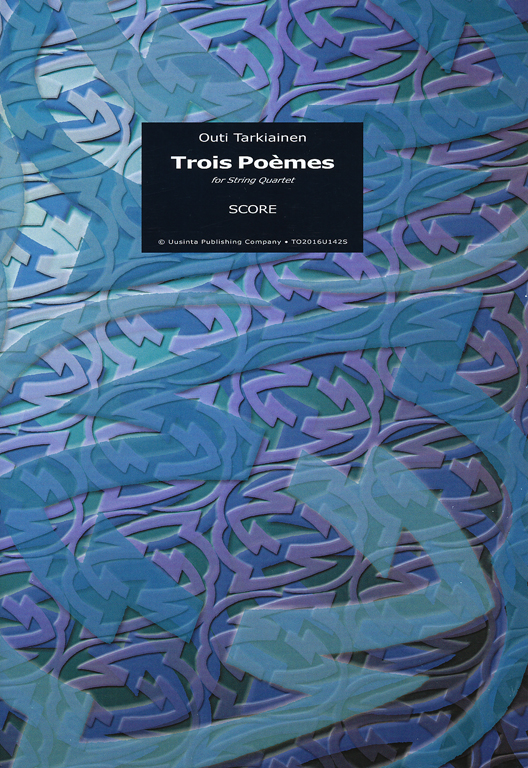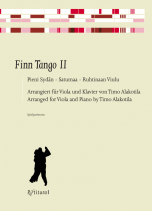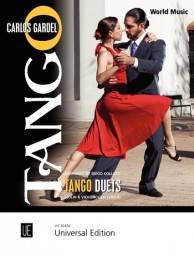Nuotteja ja kirjoja kaupassa 58 719 kappaletta ● Erikoistuotteet tilauksesta
Avoinna ma-pe klo 11-18 | puh. 020 7070443 | Musiikkitalo, Mannerheimintie 13a B, 00100 HELSINKI | ostinato@ostinato.fi
Sibelius
Trio a Havträsk JS 207 (vl,vc,pf)
Hinta: 47,49
€
Varastossa
Jean Sibelius
Trio in A minor “Havträsk-Trio” JS 207
Urtext based on the Complete Edition “Jean Sibelius Works” (JSW) edited by Folke Gräsbeck and Anna Pulkkis
First edition of this early work
1. Allegro maestoso
2. Andantino
3. Scherzo: Vivace
4. Rondo
Five multi-movement trios for piano and two string instruments by Sibelius are known from the years 1883–1888. The “large” trios, such as the Havträsk and Korpo Trio (JS 207, JS 209), were written for the classical piano trio scoring of violin, violoncello and piano. Apparently, Sibelius kept composing trios to play among his family and friends, having in mind to be one of the musicians himself. Chamber music was an essential part of social life. When listening to Sibelius‘ trios, one cannot help but notice that the repertoire included many works of Viennese Classicism.
Although Sibelius's feelings towards his youthful works were not exactly uncomplicated, Sibelius biographer Otto Andersson later reported “that the master, in later years, missed [the Korpo Trio] very much and would have been very pleased to see [it] preserved.”
Trio in A minor “Havträsk-Trio” JS 207
Urtext based on the Complete Edition “Jean Sibelius Works” (JSW) edited by Folke Gräsbeck and Anna Pulkkis
First edition of this early work
1. Allegro maestoso
2. Andantino
3. Scherzo: Vivace
4. Rondo
Five multi-movement trios for piano and two string instruments by Sibelius are known from the years 1883–1888. The “large” trios, such as the Havträsk and Korpo Trio (JS 207, JS 209), were written for the classical piano trio scoring of violin, violoncello and piano. Apparently, Sibelius kept composing trios to play among his family and friends, having in mind to be one of the musicians himself. Chamber music was an essential part of social life. When listening to Sibelius‘ trios, one cannot help but notice that the repertoire included many works of Viennese Classicism.
Although Sibelius's feelings towards his youthful works were not exactly uncomplicated, Sibelius biographer Otto Andersson later reported “that the master, in later years, missed [the Korpo Trio] very much and would have been very pleased to see [it] preserved.”
